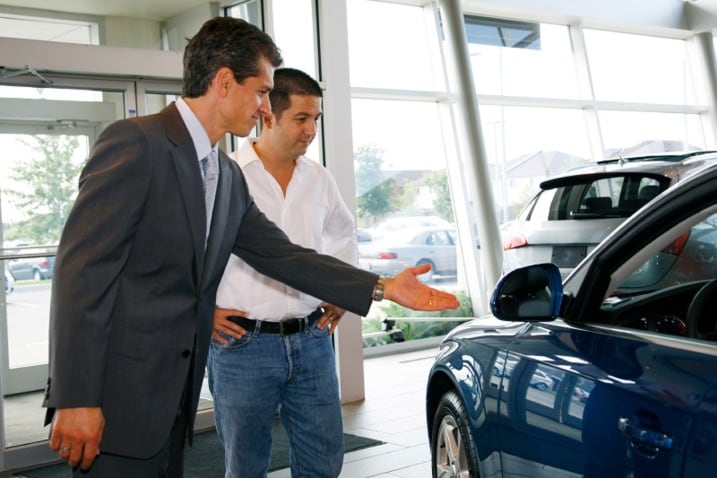The Finance and Insurance Manager
It's the task of the finance and insurance manager (or F&I manager) to print out the sales or lease contract and make sure that the buyer's financing is in order. The F&I manager also presents and arranges dealership financing. Often, the interest rates offered by the automakers are the lowest available, so this can be a valuable step in the process.
The F&I manager also typically will offer you a number of products and services for purchase such as extended warranties, paint protection or a car alarm system. These items can be very profitable for the dealer. If you get drawn into buying products you don't really want, or don't negotiate their prices, you can end up spending more than you had planned for your vehicle purchase.
The General Manager
The dealership's general manager is the highest authority at the business. He or she presides over both the sales and service departments. If you have a problem with your vehicle that hasn't been resolved by anyone in the normal chain of command, the general manager is your next step.
The Porter
Porters handle the cleaning, moving and delivery of vehicles at the dealership, so you might not ever have occasion to meet them. If you've purchased a vehicle online and arranged to have it delivered to your home or office, however, a porter will usually accompany the internet sales manager and provide a ride back to the dealership.
The Vehicle Delivery Specialist
You won't find vehicle delivery specialists at every dealership, but some of the bigger stores have them. This isn't someone who literally delivers the car to you. This is a tech expert whose job is to make sure you understand all the important features in your new car.
After your sale is complete, the vehicle delivery specialist will go over the car with you, looking for any dents, dings or scratches. The specialist will review the owner's and service manuals with you, too. Then comes the main event: a vehicle tutorial, which can last from 20 minutes to an hour. During this time, the delivery specialist will walk you through all basics: how to adjust the seats, operate the power windows, and move and store the rear seats in an SUV. He or she will typically pair your phone, explain steering-wheel controls and go over other safety or convenience features.
Before You Go Shopping
Now that you know who's who at the dealership, we suggest reading two helpful articles to understand how to work with them: 8 Steps to Buying a New Car and How to Lease a Car. They'll make the car-shopping experience easy, and maybe even fun.

